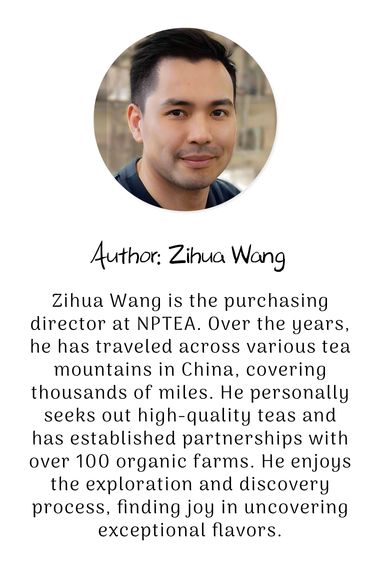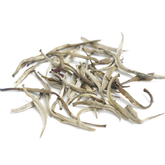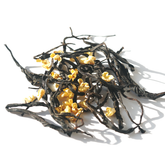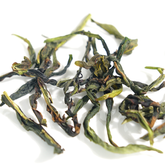A Complete Guide to Longjing Tea: Origins, Taste, Brewing Tips, and Health Benefits
West Lake Longjing, also known as “Dragon Well Tea,” is ranked first among the Top 10 Famous Chinese Teas, and is one of the most well-known Chinese green teas .
With a history of over 1,200 years, it was once a tribute tea to emperors in ancient China. In 2016, during the G20 Summit held in Hangzhou, West Lake Longjing tea was chosen to serve heads of state from around the world.

As a tea sourcing manager with many years of experience in China, I’ve consulted extensive resources and interviewed local tea farmers from key production areas. This article is a comprehensive guide that explores the origin, history, production, and authentication of West Lake Longjing to help you truly understand this legendary premium green tea from China.
The Origin of West Lake Longjing
West Lake Longjing is grown in villages around West Lake in Hangzhou , Zhejiang Province, China. According to strict geographical indication protection, only teas from the core production zones can be officially called “Longjing Tea.” These core zones are divided into three main areas:
- Shifeng Village: Surrounded by misty mountains, with mineral-rich soil
- Longjing Village: Located on the southern bank of West Lake, known as the birthplace of “tea culture”
- Yunqi, Hupao, Meijiawu: Moderate elevation with balanced sunlight and humidity
Due to the extremely limited cultivation area—smaller than Manhattan—the supply of authentic core Longjing is very scarce. Most of it is allocated as tribute-grade tea for high-ranking officials. The price is extremely high, and even wealthy Chinese tea enthusiasts often find it difficult to purchase.

For Western customers, we do not recommend obsessing over core regions. Surrounding areas also produce high-quality Longjing green tea, which may have a slightly lighter aroma but offers far better value for daily drinking.
The History of Dragonwell Green Tea
The history of West Lake Dragon Well Tea dates back over a thousand years. Around the year 1000 CE, a monk named Bian Cai planted a tea seedling at Shifeng Mountain near Longjing Temple—now Longjing Village. That tree became the ancestor of Longjing tea.
Its fame peaked during the Qing Dynasty. In 1751, Emperor Qianlong visited Hangzhou and personally picked fresh tea buds. After his mother, the Empress Dowager, recovered from illness after drinking the tea he brought back, Qianlong was so pleased that he named the 18 tea bushes he picked from as "Imperial Tribute Tea." From that point forward, Longjing was recognized as a tea worthy of royalty.
West Lake Longjing didn’t just win over China—it impressed the world. In 1915, it won a gold medal at the Panama-Pacific International Exposition in San Francisco, establishing its global reputation as a world-class green tea.
The Production Process of West Lake Longjing
As a non-fermented green tea, West Lake Longjing preserves the natural taste and nutrients of fresh tea leaves. The process retains a high amount of amino acids and aromatic compounds found in young shoots.

- Harvesting: In early spring each year, tea farmers hand-pick newly sprouted buds. Teas picked before the Qingming Festival are considered the best and command the highest prices.
- Pan-Frying: This is the heart of Longjing production. Tea artisans stir and press the leaves in a hot wok using bare hands—a process called "sha qing", or de-enzyming. It halts oxidation and gives Longjing its signature flat shape.
- Drying: After frying, the leaves are further dried to remove moisture, producing a tea with a unique green or yellowish-green color.
Health Tip: West Lake Longjing is rich in polyphenols, which may cause stomach discomfort when consumed on an empty stomach. If you have a sensitive stomach, avoid drinking it before meals.
The Taste of XiHu Longjing
The taste of West Lake Longjing Tea is often described by Western tea lovers as the “Champagne of Green Teas”—fresh, elegant, and refined.
The tea liquor is light, smooth, and slightly sweet, with subtle notes of fresh beans, roasted chestnuts, and a soft vegetal freshness. It’s like sipping the morning dew of spring, or the light aroma of steamed green peas. The flavor is somewhere between unsalted roasted cashews and tender bean sprouts—clean, vegetal, yet never bitter or overpowering. A pleasant sweetness lingers at the back of the tongue, similar to the fresh aftertaste of fruit rather than artificial sweetness.
As an unoxidized tea, Longjing green tea lacks the heaviness of black or pu-erh tea. It is better suited for those seeking a lighter taste, focusing on health, or simply enjoying light-bodied loose leaf teas on a daily basis.
How to Brew Loose Leaf Longjing Tea
Daily Method : Transparent Glass Cup
- Place around 3g of West Lake Longjing into a 200–300ml glass.
- Pour in one-third of hot water and immediately discard it to rinse off dust.
- Slowly add hot water (around 80°C / 175°F) along the inner wall of the glass.
- Let steep for 2–3 minutes, then enjoy.

Tip: Avoid using boiling water—it may turn the tea bitter. Refill before the liquor becomes too strong in the later steeps.
Gongfu Method : White Porcelain Gaiwan (120ml) + Fairness Pitcher + Tasting Cups
- Add around 5g of tea into the gaiwan. Rinse with hot water briefly to remove dust and awaken the leaves.
- Refill with hot water, cover, and steep for about 10 seconds.
- Pour the tea into a fairness pitcher, then into individual tasting cups.
- For later infusions, gradually increase steeping time according to your preference.
Summer Cold Brew Method: Western Iced Tea Style
- Prepare 5g of tea in a 500ml container.
- Briefly rinse the tea with boiling water to remove dust and activate the leaves.
- Add spring water or filtered water, and refrigerate for 3–5 hours before drinking.
Proper Storage of West Lake Longjing
The unique charm of West Lake Longjing tea lies in its freshness. Since green tea is sensitive to moisture, heat, and oxidation, proper storage is essential to preserve its flavor and color.(Expand Reading: How to Properly Store Your Tea )
Unlike wine, Longjing doesn’t improve with age—the fresher, the better. The optimal drinking period is within six months. To keep your Longjing in top condition, follow these tips:
- Airtight Sealing: Store in well-sealed, light-blocking containers like foil bags or opaque tins.
- Keep Cool and Dry: Avoid light, heat, and odors. Store in a cool, dry, and odor-free environment.
- Refrigerate: For best results, refrigerate your sealed tea at 0–5°C (32–41°F) to maximize freshness.
Health Benefits of West Lake Longjing
Longjing has been enjoyed for over a thousand years as a royal tribute tea and remains one of the most beloved teas in China today. Its long-standing reputation is supported by modern science and health research, and it is often regarded as one of the best green tea for weight loss thanks to its clean flavor and traditional wellness associations.

The World Health Organization’s report on global health drinks ranks unsweetened tea on par with water in terms of safety. Among all unsweetened beverages, Chinese loose leaf tea is considered one of the best.
-
Rich in Natural Antioxidants – Slows Aging
Longjing is high in tea polyphenols, especially catechins like EGCG, which are potent antioxidants. These compounds fight oxidative stress and free radicals, slowing down cellular aging (Cabrera et al., 2006, Journal of the American College of Nutrition). -
Supports Fat Loss & Metabolism
Catechins in green tea boost fat oxidation and metabolic rate, helping reduce cholesterol and maintain a healthy body (Hursel et al., 2009, Obesity Reviews). -
Improves Brain Function & Alertness
Contains moderate caffeine and L-theanine, a combination shown to enhance focus, memory, and reaction speed while reducing caffeine-induced jitters (Einöther & Martens, 2013, Appetite). -
Antibacterial & Oral Health Support
Tea polyphenols inhibit oral bacteria that cause cavities and gum disease, promoting fresh breath and dental health (Xu et al., 2016, Archives of Oral Biology).
Buying Tips for West Lake Longjing
Origin & Price: Don’t Be Obsessed with Core Zones
Teas from core areas like Shifeng or Longjing Village are extremely rare and expensive. Even in China, these teas are hard to buy, even with money.
You don’t have to insist on core-area teas. High-quality Longjing from nearby regions offers similar flavor and aroma with much better affordability.
Shelf Life & Freshness: Buy in Spring (Spring Tea)
Always check the production date when purchasing. The best time to buy Longjing is during early spring (late March to April) when the new harvest is released. This ensures optimal freshness and flavor.
Try Before You Buy
If you’re unsure whether you’ll like a particular Chinese loose leaf tea, the best approach is to try a small sample first. If you enjoy it, you can purchase larger quantities later.
Final Thoughts on West Lake Longjing
West Lake Longjing is the epitome of premium, healthy Chinese green tea. Grown in the villages around West Lake in Hangzhou, its history spans over a millennium. Once a royal tribute tea, it remains a national treasure to this day.
Its fresh aroma, sweet aftertaste, and non-bitter flavor break the stereotype that all green tea is bitter. For those new to Chinese Gongfu tea, Longjing tea is a great place to start.
Dragon Well Tea FAQ
1. Is Longjing a green tea?
Yes, Longjing is a non-fermented green tea and one of the most famous in China.
2. Does Longjing tea contain caffeine?
Yes, it contains moderate caffeine, usually less than coffee or black tea, and is suitable for daily drinking.
3. How do you brew Longjing tea?
Use a glass cup with 85°C (185°F) water, steep for 1–2 minutes, and re-infuse multiple times. Avoid boiling water.
4. When is the best time to drink Xihu Longjing tea?
Morning or afternoon is ideal for mental clarity and fresh breath. Avoid drinking on an empty stomach.
5. What are the benefits of Longjing tea?
It’s rich in antioxidants and helps boost energy, detoxify the body, and support metabolism.
6. Where can I buy authentic Longjing tea?
Look for specialty Chinese tea shops or visit tea farms in Hangzhou. Make sure it’s labeled as “West Lake Longjing.” But avoid obsessing over core regions—they’re overpriced and often counterfeited.
SEE MORE LOOSE LEAF TEA
If you are a beginner about Chinese tea:
Basic-Guide-to-Chinese-Tea
If you have questions about selecting tea:
Learn-more-about-chinese-tea
If you have questions about the benefits of tea:
Health-benefits-of-chinese-tea
If you have questions about brewing tea:
How-to-brew-loose-leaf-tea






